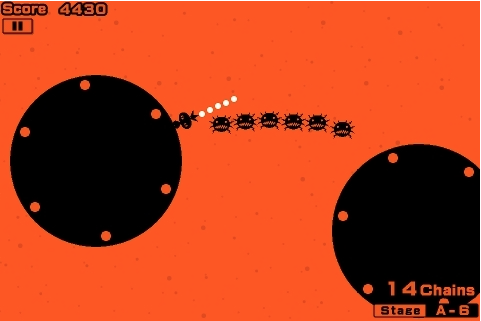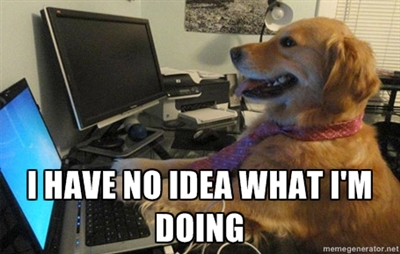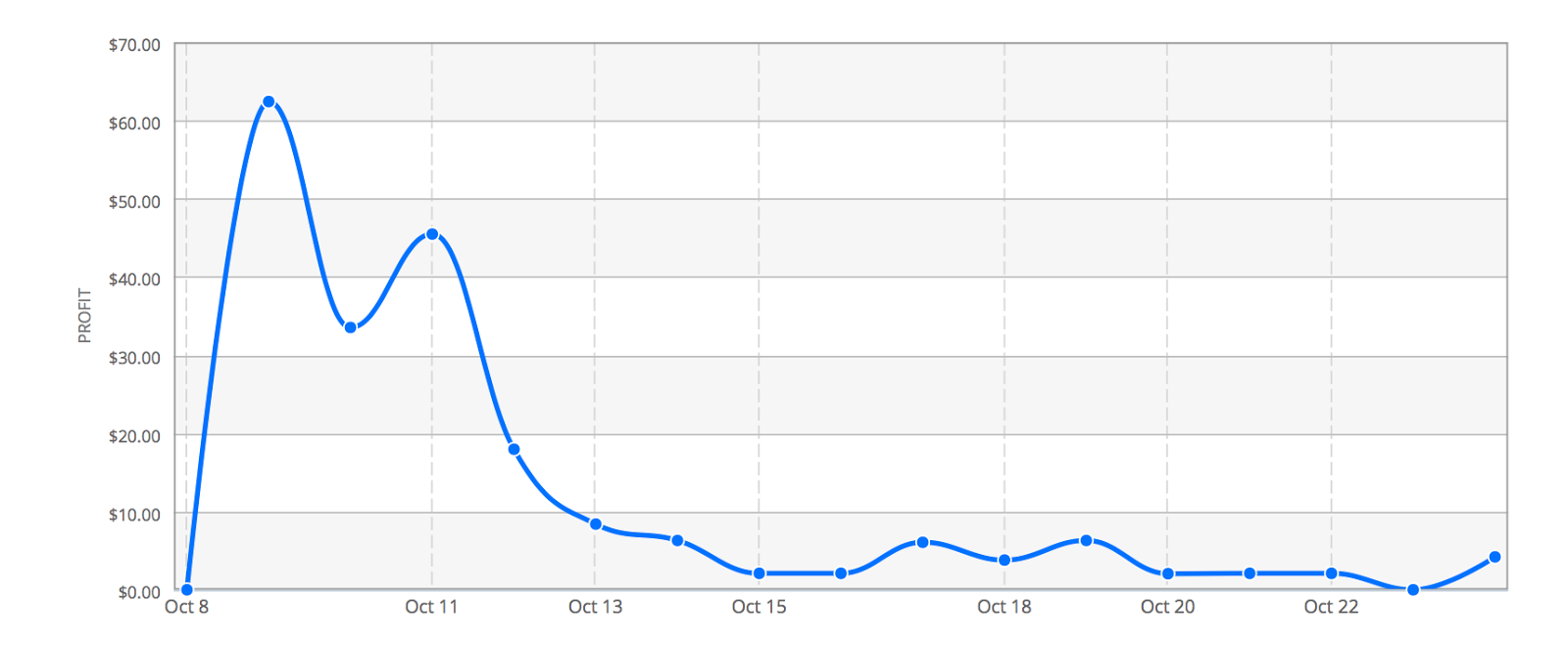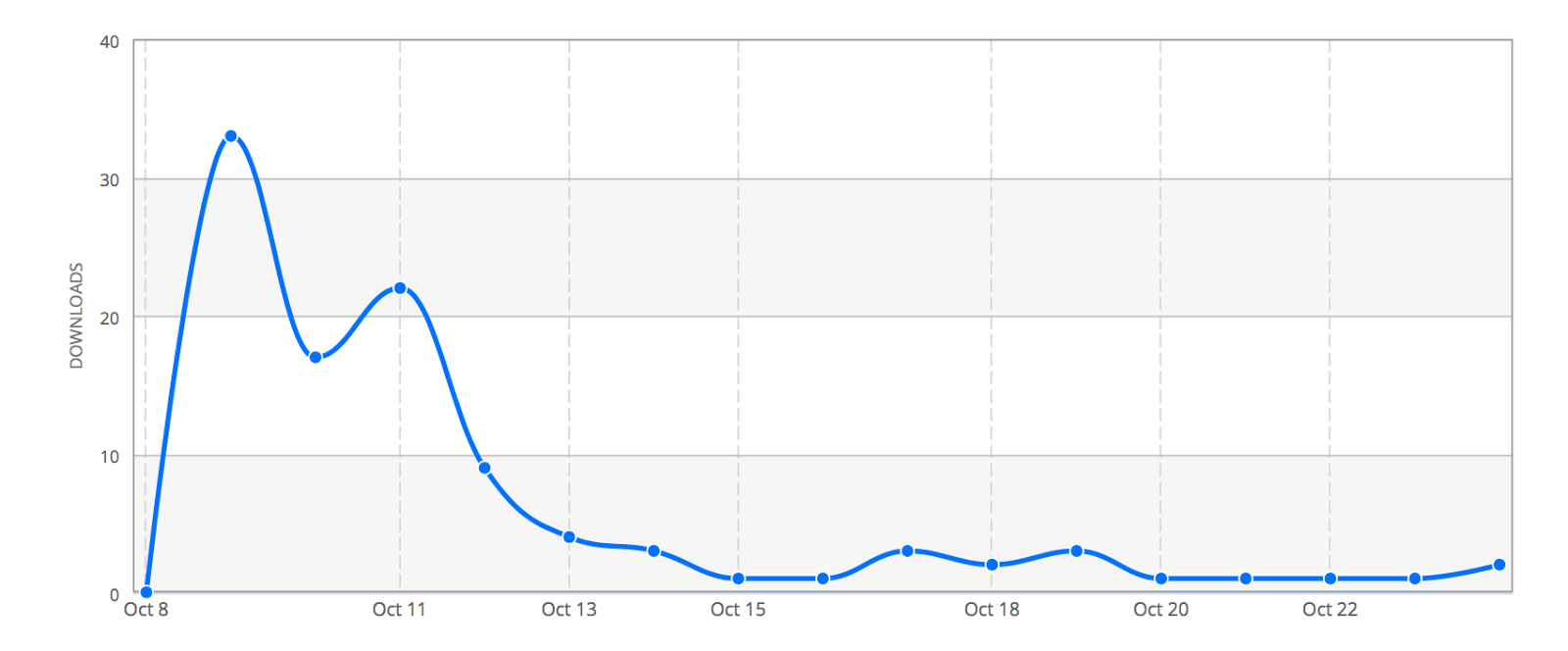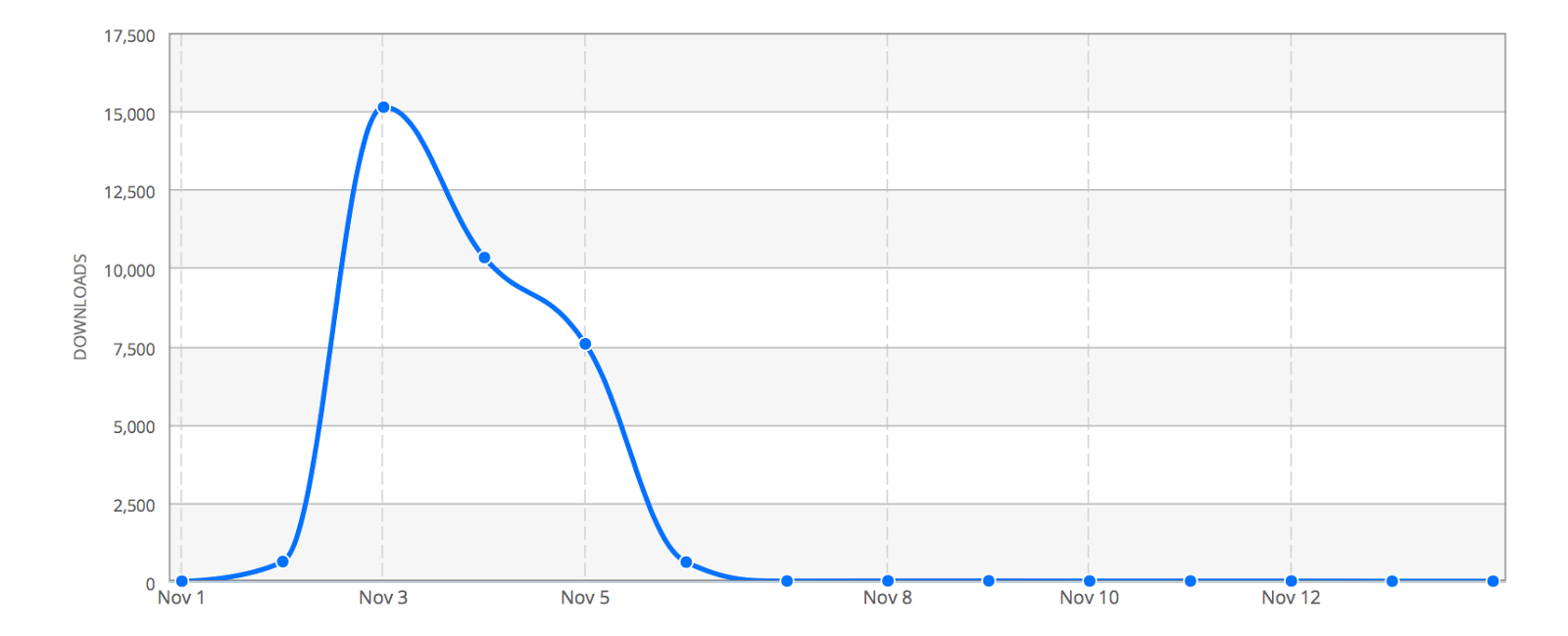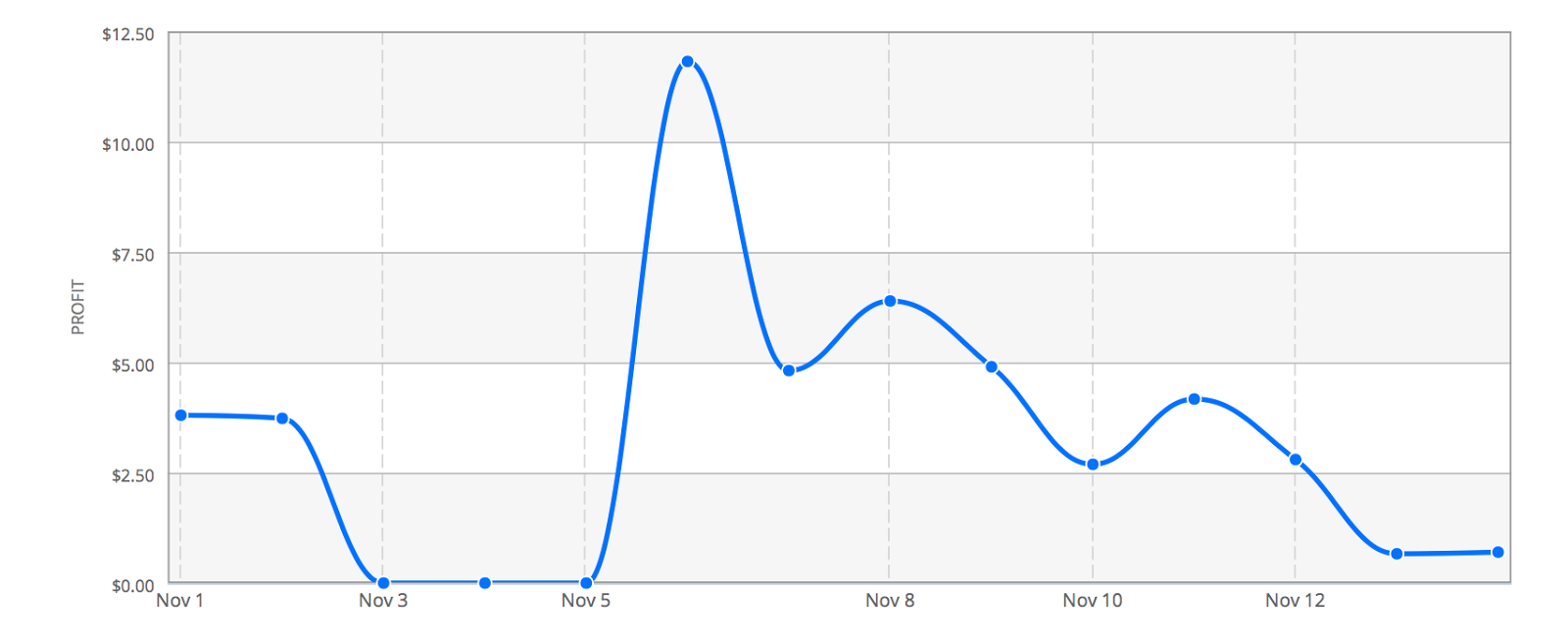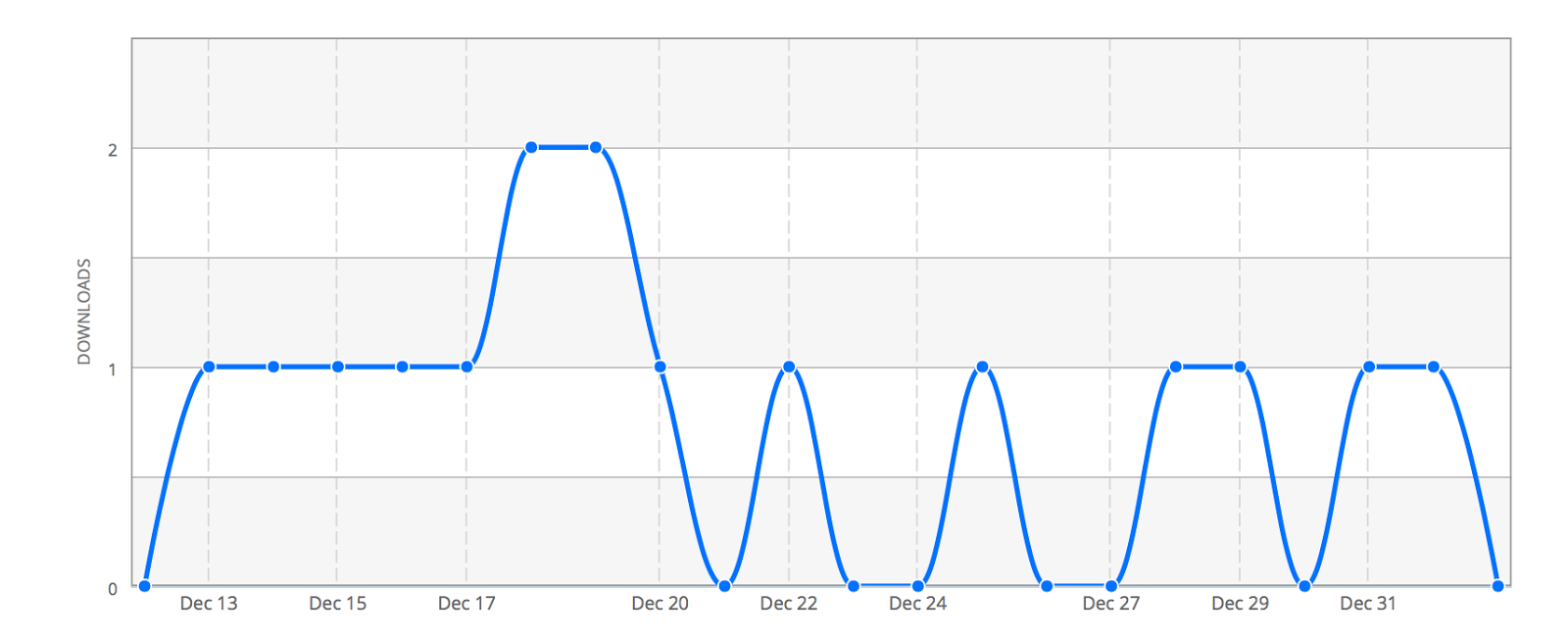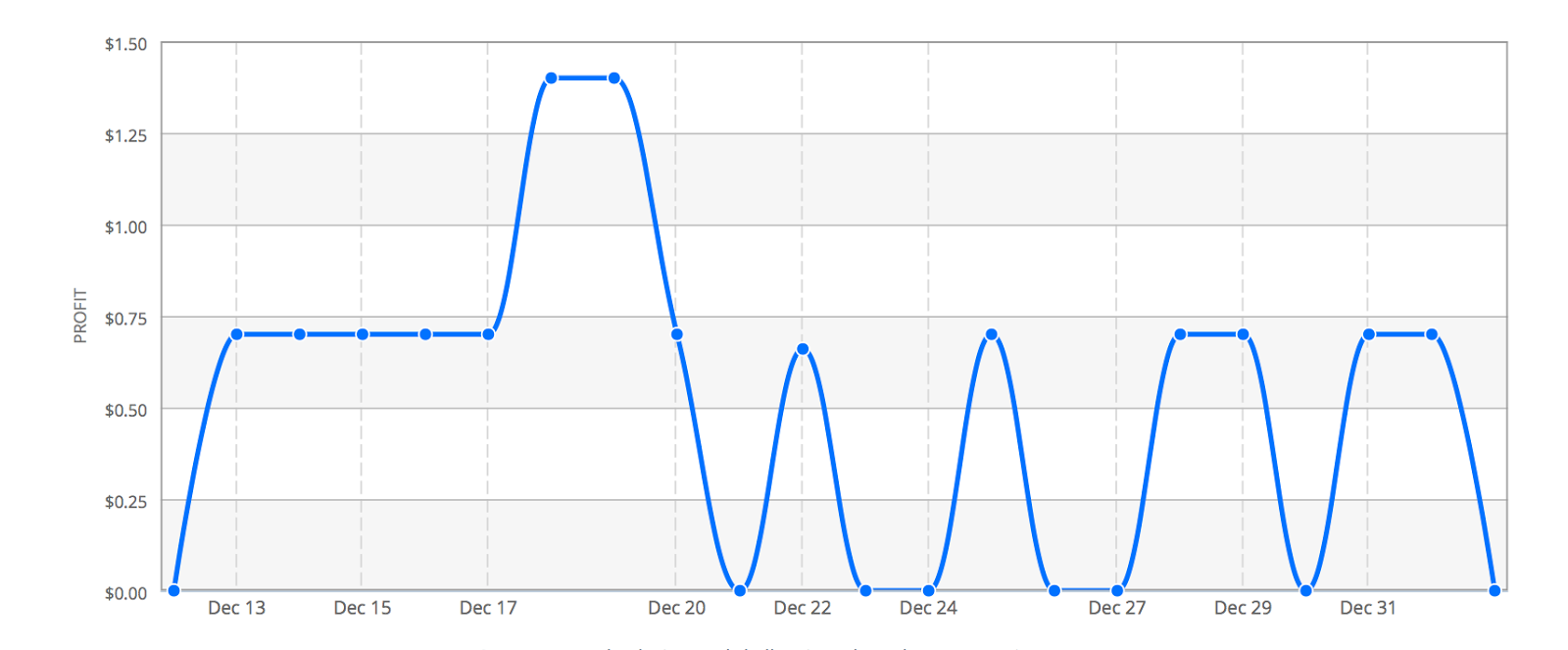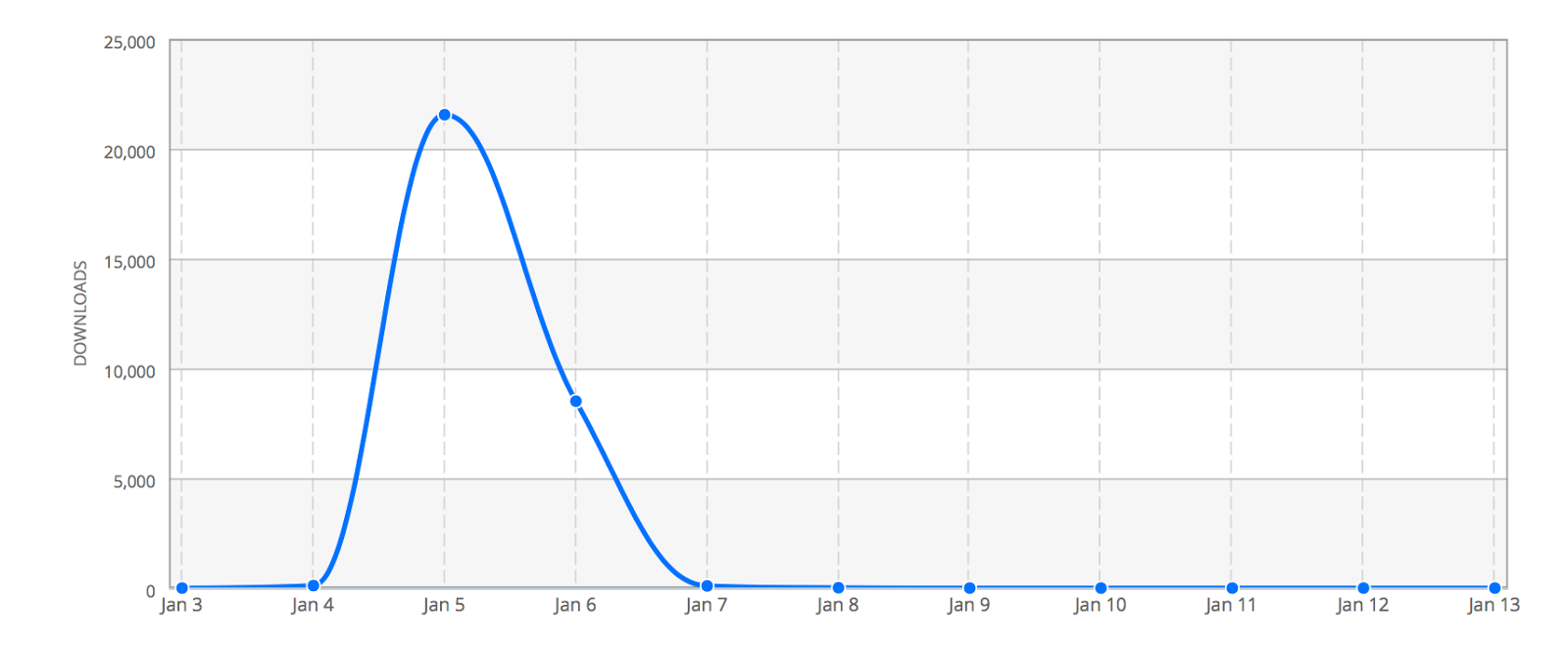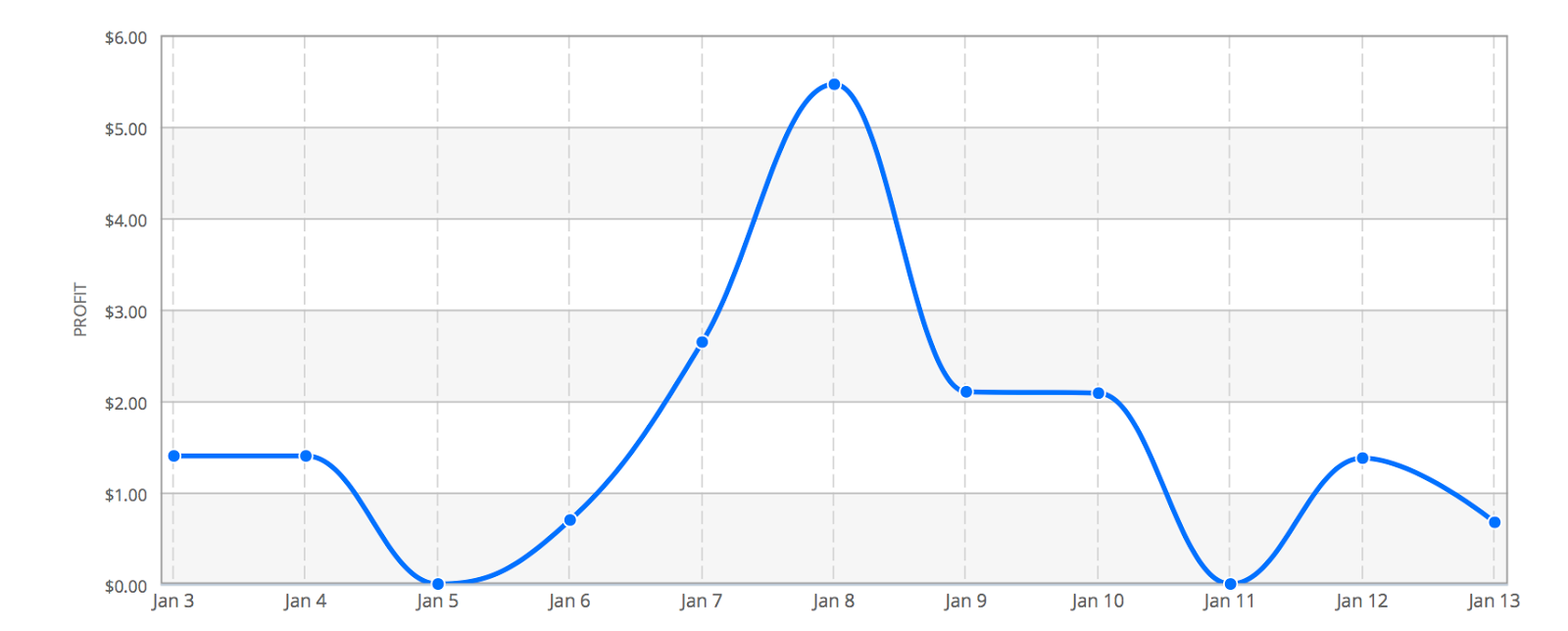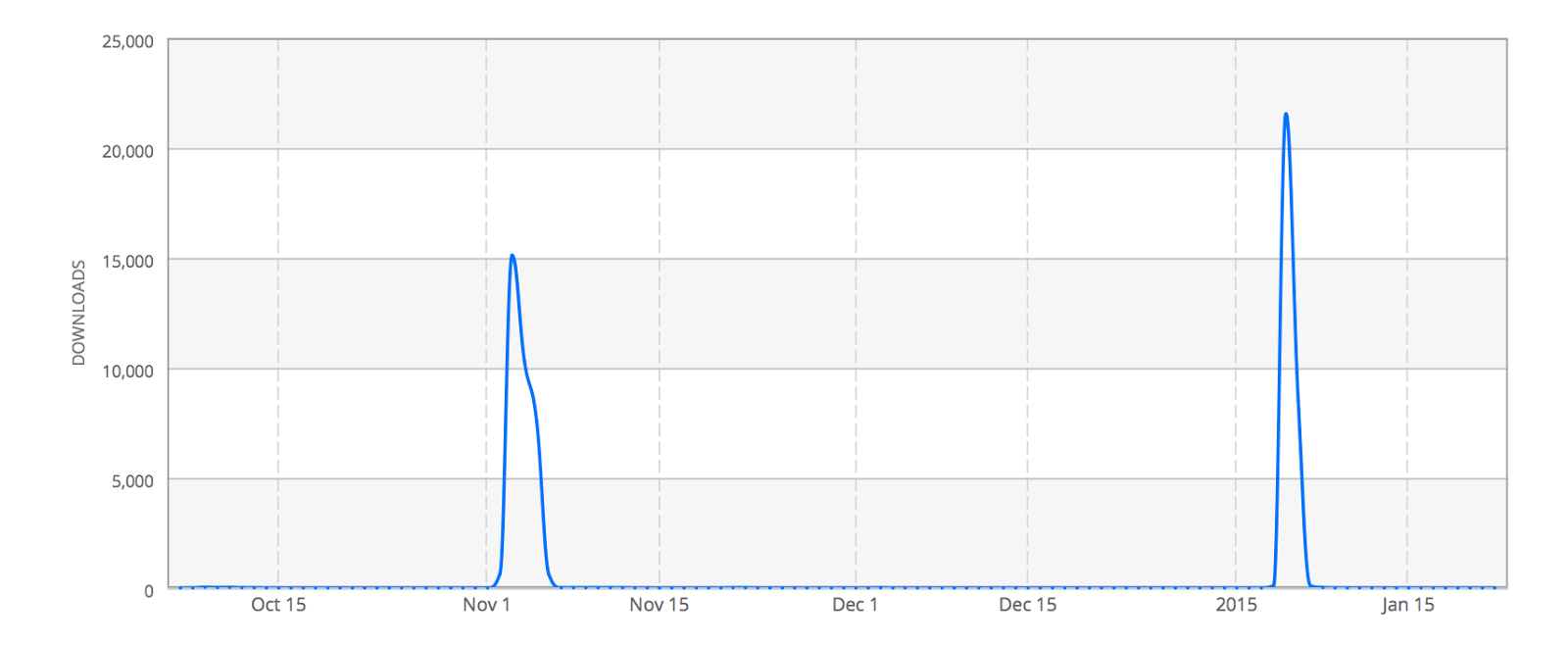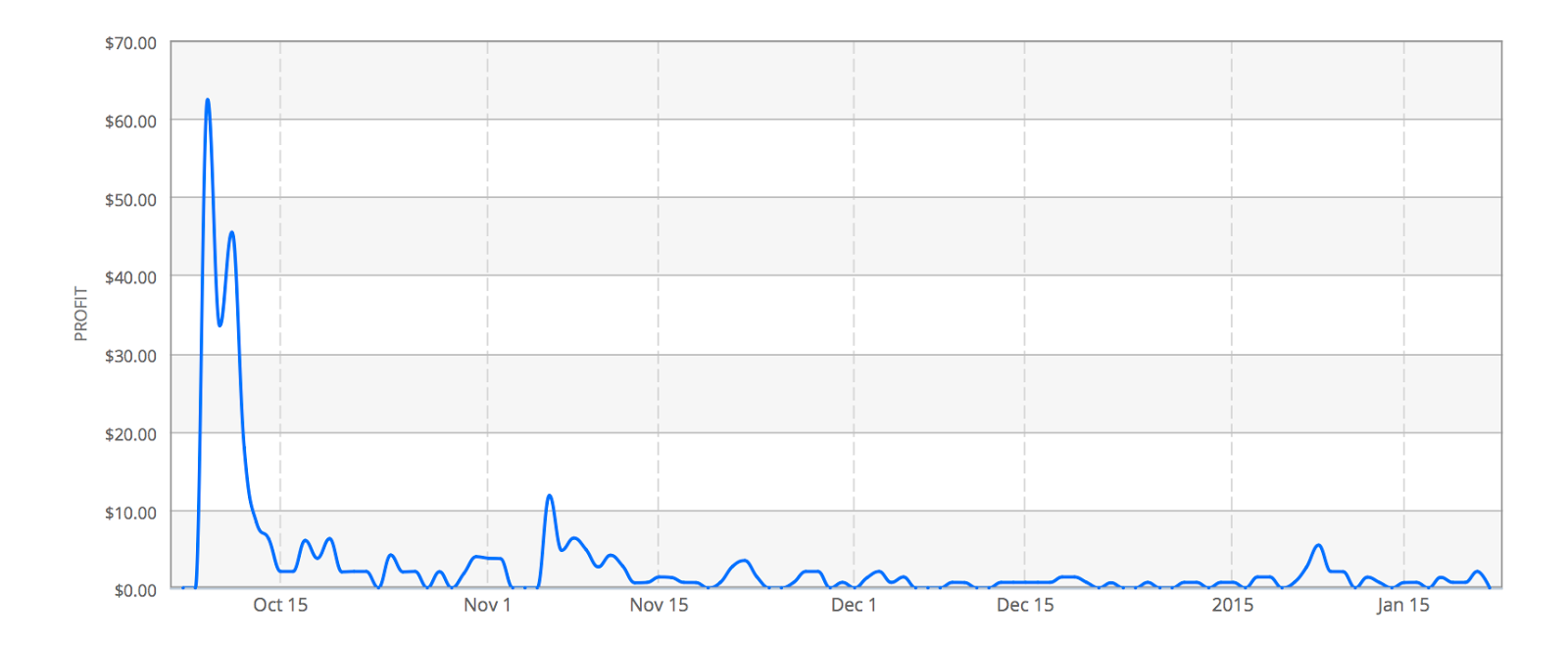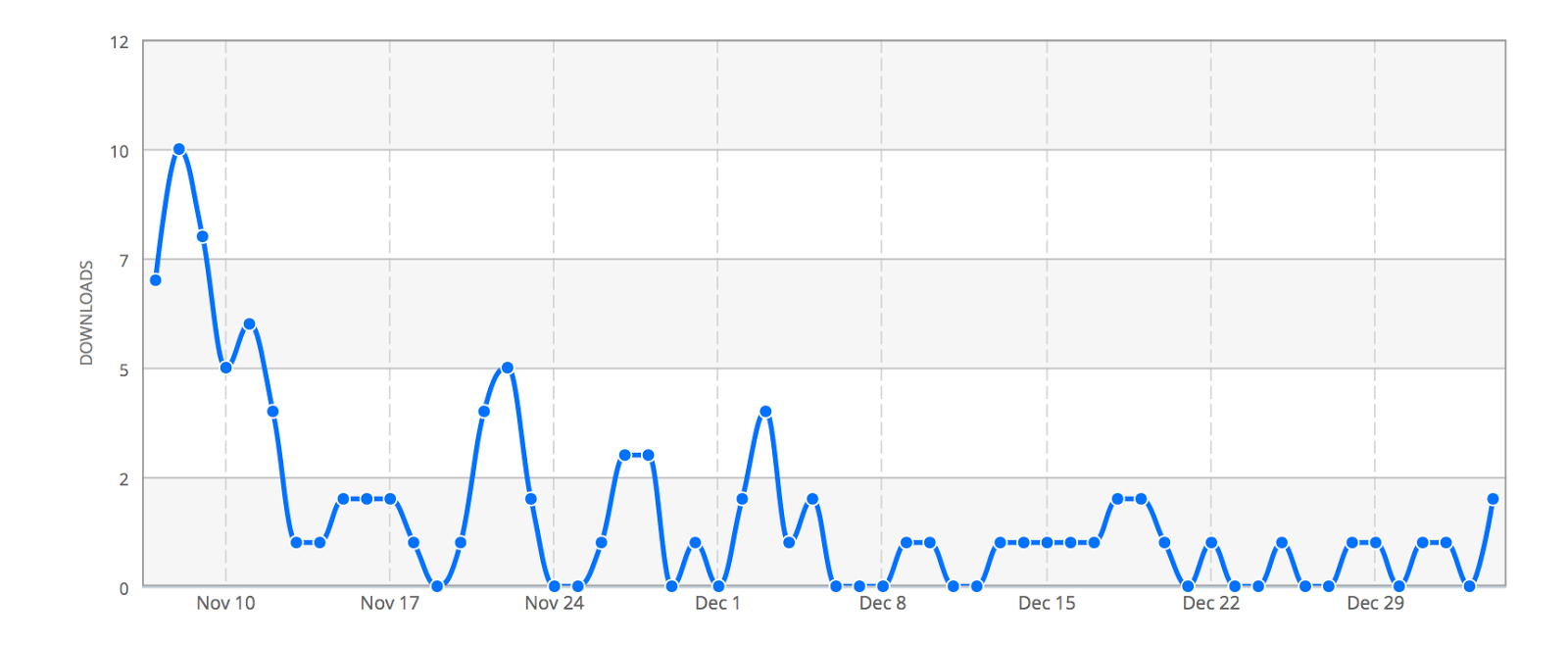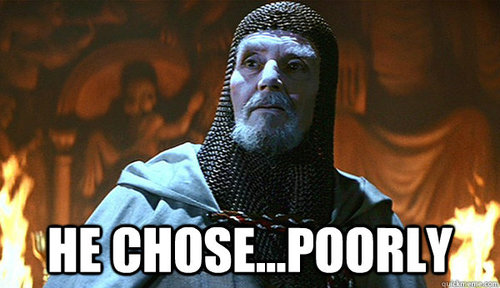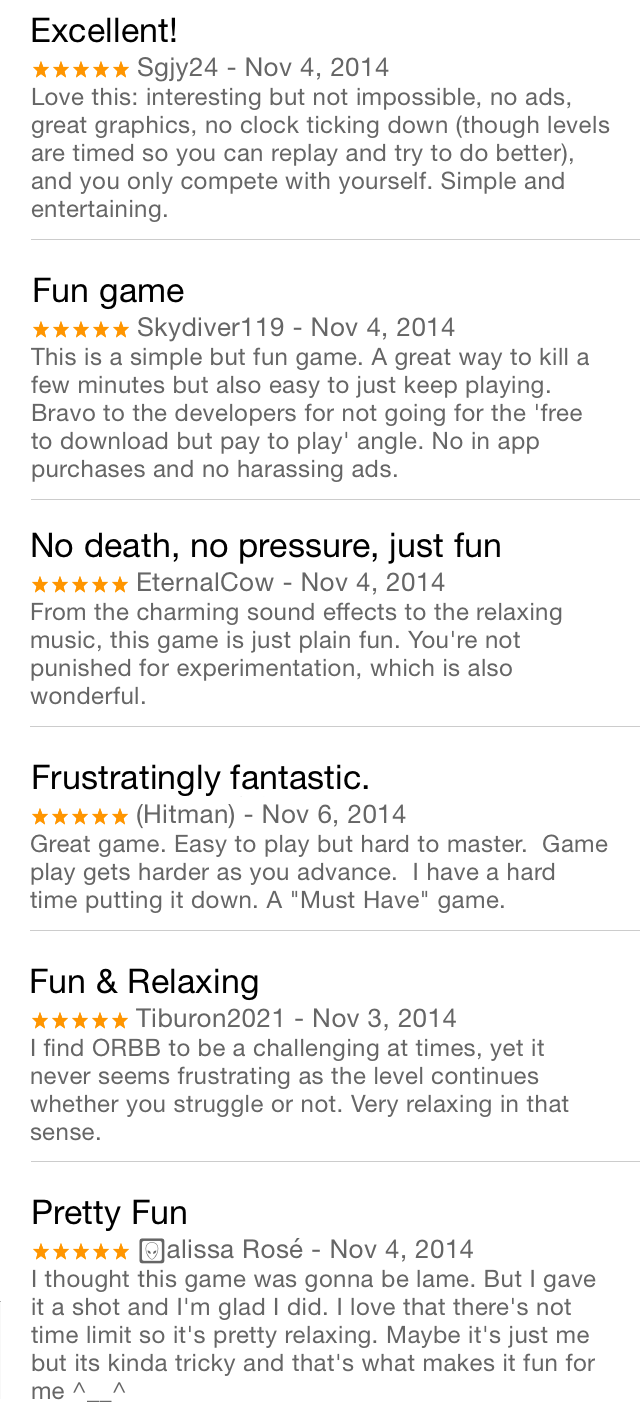Game developers and founders of the independent game studio MochiBits Kyle Yamamoto (Kyle Yamamoto) and Howard Go (Howard Go) shared with readers of their blog the story of the creation of the game ORBB – and their thoughts on why it did not become a hit. We have translated this text and are publishing it with the permission of the authors.
The history of ORBB began with one 4-hour game jam in 2013. We had an idea – to make an endless game about jumping from planet to planet. As a reference, we took the classic title Mr. Ninja.
Screenshot from the game Mr. Ninja. The image is taken from the SlideToPlay resource
The gameplay was extremely simple: jump from planet to planet to collect coins and finish the level. There are no time limits. There is no death. There is fun.
We weren’t really going to make a real game – until we realized that we wanted to work with the Unity engine. Up to this point, we had not encountered 3D, and it seemed to us that here it was, a great opportunity to learn in the process.
We wanted to make a game with a simple structure, a minimum of graphics and content, but – cute. All we needed were spheres and 2D textures. And no additional 3D assets! The physical model was very simple, so we quickly assembled a prototype and started creating levels for it.
Nothing complicated!
Our initial goal was to finish the project in 3 months. We worked on beta for 3 weeks, and then demonstrated it at GDC (Game Development Conference – approx. translator). She was well received. We decided that we were on the right track. And then we got a very thoughtful feedback on some of the levels and realized that the direction in which we were moving did not correspond to the initial feeling of the game created on the jam.
The original gameplay was not limited in time. There was no death, the player could jump back and forth at his pleasure. Half of the levels in our demo version were the exact opposite of what was planned: there were levels for time, “instant death” and very, very complex jump sequences.
So we changed the focus of the game.
Eventually we came to a series of obstacles where there were no time limits, death or other hardcore elements. It was beautiful. The only thing that confused us was that we had already spent a month on the previous, “wrong” version of the game.
Now we were simultaneously trying to figure out how to build the game in order to preserve the original idea, and at the same time we were discussing various monetization options. Power-ups, cheats, special flying characters, additional levels, bonus levels, a fully paid game, advertising, a paymium game (a monetization scheme in which the demo version of the game is downloaded for free; if you like the game, you can purchase the paid version, – approx. translator) and so on. All this can be divided into three categories: IAP, level packs and just a paid game. In the first two versions, the game is shareware.
We have weighed all the pros and cons of each option.
We liked IAPs because they could theoretically allow us to make a profit from those users who liked free games. We knew from our previous projects that there would be a lot of them. On the other hand, adding IAP meant significantly changing the gameplay in order to create a purchasing system and a game economy. We decided that this option is not suitable for us.
Level packs would allow us to make the game free, which would give good “visibility” and the maximum number of downloads. We would have received a decent conversion, provided that ORBB would have had the same success as other games with the same monetization system.
It also made sense to make ORBB a 100% paid game, because we thought that the project was solid, and the experience from it should also be solid. We also noticed that paid indie games are more often featured compared to free-to-play games with IAP (here we crossed our fingers).
As a result, we decided to make the game paid. It seemed to us that there would be no problems with the promotion of the title, and we also thought that the project came out cool and sound, so people would not be sorry to give a couple of bucks for it.
We are back to development.
By this time we had already spent about four months working on the project and we were already starting to get sick of it. At the same time, there was still a lot of work ahead. For example, the level design sucked. At least, that’s what we thought. Even after we agreed that the feeling of the project should be the same as we came up with during the game jam, the levels of the game were built randomly. It was hard to focus.
This continued until we had all the gameplay features and draft versions of all levels on our hands – only then did we finally see the light at the end of the tunnel. Only six months of development. Not bad, right?
We started planning the launch with the help of Dana Trebella. We did not sell the rights to ORBB to publishers, although we had such an idea. The reason why we chose to publish ourselves is that one of our goals was to create our own brand aimed at young people. Our previous games were aimed at older people, and we wanted to develop in a different direction.
The ninth of October 2014. Launch day. Thanks to Dana, the project received some quite decent reviews from the relevant sites. We were excited. We were even noticed on Touch Arcade when the game came out. I estimated our chances of feathering as 50/50.
We weren’t faked. We were upset, but not surprised. Now the question was whether ORBB could be sold without fitching, based on good reviews alone.
And here is the information that will give you the answer to this question.
NUMBERS!
Launch date: October 9th
Price: $2.99
Number of downloads: 33
Revenue: $62.42
The first two weeks (general indicators)
Price: $2.99
Number of downloads: 104
Revenue: $204.94
Note: The actual revenue was slightly lower because some downloads are advertising.
As you can see, the numbers are very, very sad. The “long tail” of sales caught up with us during the first week since the launch. We hoped that even without feathering we would have 20-30 downloads per day. It turned out that we considered the day successful if there were 2-3 downloads.
By October 13, just 4 days after the download, it became obvious that ORBB had become a giant financial failure. Eh.
In the end, we decided to make the game free – starting on November 3rd. I sent emails to several sites that distributed free apps, and we were lucky: AppGratis chose us.
Features on App Gratis: November 3rd
Price: FREE
Number of downloads: 34,308
Revenue (the game cost $0.99 after downloading the promo version): $46.48
We were very pleased with the number of downloads of free promo versions of our game. But the final revenue … did not please, although it was enough to treat a couple of friends with beer.
There were holidays ahead, Christmas and New Year’s sales peaks were approaching (or lack thereof).
“Peak” of sales: New Year holidays
Price: $0.99
Number of downloads: 16
Revenue: $11.16
Somehow, perhaps from the AppGratis promo, AppTurbo found out about ORBB. They contacted us and offered to start free distribution sometime in January. Here are the results.
Features on AppTurbo: January 5th
Price: Free
Number of downloads: 30,295
Revenue: (the game cost $0.99 after downloading the promo version): $17.85
Another satisfactory result, at least in terms of downloads. And a couple more beers for friends.
Here is a graph of how much ORBB has earned in total, and how many times the game has been downloaded during its entire existence.
I understand that the first graph is absolutely useless, so here is the download graph between the two download peaks.
Lots of ones and zeros! I love reports for their binary nature.
ORBB statistics for the entire time of its existence (as of January 22)
Total number of downloads: 64,777
Total revenue: $323.70
Development time: 6 months (2 people)
As you can see, there is no smell of a successful business model here. We miscalculated. Specifically miscalculated.
Looking back, we understand that in some moments it was necessary to act differently – and it still would not guarantee success. We could force ourselves to develop the game in 3 months, but how satisfied would we be with the result then? Even if we decided to make the game free with IAPs, I don’t think it would be of interest to those who feature games. I am sure that we would have been able to attract a certain number of indie fans if the gameplay of the project was focused on Twitch. But then we would have to move away from the image of the game that we created in our imagination.
When we started working on ORBB, we had several goals in mind – and we even managed to achieve some of them. We wanted to create a gaming experience that users would like. We planned to get to know Unity better and launch something in stores. We wanted to make a perfect and immaculate game, such that looking at it, you could say “We did it!”.
We have achieved all these goals and are very pleased with the results. We are especially proud that after the first promo we managed to get an average of 5 stars. After the second promo, our result is 4 and a half stars. There are a lot of nice things about ORBB in the reviews, so we feel legitimately proud. We made a great game!
Unfortunately, you can’t pay bills with excellent reviews. And the fact that users liked the game is not a guarantee of its financial success. We are indie developers, and we need to sell our projects. Earn money from them.
Here is the most valuable lesson we learned from working on ORBB: working with an unfamiliar market means taking a huge risk. Fortunately, the other games we were working on were fine, so we could afford that risk.
Our advice to those who want to make a game or are going to try their hand at a new genre of games or applications for themselves: define your goals and have realistic expectations.
You need to ask yourself:
- Am I developing a game for a fan or am I going to make money on it?
- Do I have enough money to survive the development phase?
- Do I have any funds left if the game “doesn’t shoot”?
- Am I ready to take the risk?
If you want to take a risk and you have enough money, then you can do whatever your heart desires. But if you need to feed your family and pay bills, then you need to take your plans responsibly.
As for us, we have learned our lesson – we cannot pull off another such financial failure.
That’s why we decided to give up paid games for a while.
We came to the conclusion that it is not worth starting the development of a paid game at all if Apple does not get it. It’s not that our game was so worth the feathering – no, it was just cute.
I’m sure we could get a few more reviews, test the game until we’re blue in the face, and in the end we would get something worth feathering. But we got to the point where it was necessary to stop. Five months spent on development became such a point.
Fortunately, we have our good old fritupley games that allow us to remain proud indie developers, and our families are not allowed to starve to death. We will definitely release a couple more shareware games in the future.
Thanks for your attention!Other materials on the topic:


